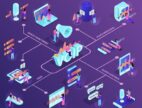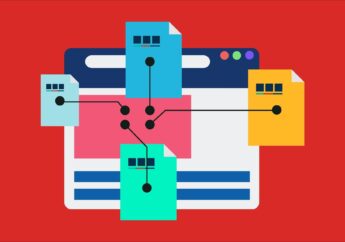How the Internet Help Students in Their Studies
by Abdul Aziz Mondal Technology Published on: 10 April 2020 Last Updated on: 28 March 2022

The Internet has re-defined nearly everything in every aspect of life. Starting from our homes to internet-based daily life necessities, workplace facilities, and the environment in general, the internet has transformed the way we used to work, play, and collaborate. Once you’ve done a simple search for “internet providers near me” and found a deal, there is so much you can do from your screen! However, if we analyze facts, the internet has influenced various other departments too, including education, banking, marketing, day-to-day business, and communication.
In this write-up, we are going to analyze how the education sector got influenced after the emergence of the internet, the existing scenario as well as the potential advancements. If you are still looking for a reliable internet connection, call Spectrum customer service through LocalCableDeals. So, let’s now review how education is relying on the internet.
1. Brings the economical and cost-cutting factor
Acquiring education demands a good amount of money, stable health so students can deal with highs and lows throughout the year. In our conventional schools, students are expected to follow a certain set of rules and controls within the premises of the school. Also, a student should have an aptitude for learning, sit in classrooms, and be ready for dealing with more than one person on a day to day basis in order to work and learn effectively. Here comes the role of the internet which has helped reduce the overall costs of education and learning with a great margin. Distance Learning or Online learning is available at economical rates; if the charges are the same, distance/online learning still reduces the traveling cost to the school, the run of being on time and meeting deadlines considering the usual substantial challenges.
2. Transformation of communication among students & teachers
The Internet has strengthened the education system on so many levels; from waiting to see your classmates and teachers during summer break to staying in touch with all of them. Teachers make community groups for keeping everyone on the same page, designate clouds so everyone can submit their assignments which serves as an online backup for the assignments too, and make everything accessible for everyone all the time. Students also make their own separate groups for their convenience which helps them every day throughout their stay at the school; where they stay updated about all courses they have taken and, about nearly everything even when physically not present.
The best educational institutions have used technology and digital platforms to ensure the continuity of learning and development during the Coronavirus pandemic. Technology has also been used by the best prep school in Singapore to set up smart classrooms and integrate audio-visual teaching aids in their educational curriculum. There have been many leading studies and research papers that have outlined how using technology, digital platforms, and the internet have played a beneficial role in the lives of teachers and students. Digital learning is a reality of the times and the best educational institutions have been at the forefront of integrating it.
3. Powerful Learning Tool
Before we discuss all the Internet-based educational tools available online, we believe the internet itself is a tool and has magnified all the facilities massively. By making libraries and researches accessible across the world and introducing open communication between schools; the quality of education has elevated through constantly updated curriculum internationally. The Internet has also raised the bar by enabling the diversity of research areas, platforms such as YouTube a video posting hub, and Pinterest image curation place, both are extremely and equally popular for providing entertainment, educational, informative, and creative ideas. Besides that, presentations, visual tutorials, animated content and so much more are available on the internet in order to make the curriculum, projects, and daily lectures rich in content.
4. Quality Education in access
A good textbook is crucial for students, however, the rest depends on the teaching methodology. Gone are the days when the textbook will never update for decades, the internet gives the opportunity to get the latest information, facts, and access to countless international books and authors which ultimately reflects in the curriculum and referred books.
5. Incorporation of Digital Media in education
The Internet adds an extra skill for all the students and teachers when they stay connected through and with Digital Media as it has become an unofficial prerequisite. Due to the constant interaction through digital media, they develop a new fundamental level of skill and are well-versed when it comes to utilizing digital tools and platforms than anyone who is not into education. Moreover, digital media and internet knowledge are not restricted to IT students anymore, but a student whose major is writing, musicology, painting, history, etc. also tend to learn all the right technological tools on the internet or a basic understanding of how digital media can complement their area of interest.
6. Constant updates and Latest Information
The urge of staying updated in this fast-paced world is a phenomenon everyone can relate to; this is the core reason everyone watches the news and read news journals. Thanks to the internet that now anyone who hasn’t subscribed for a daily, weekly, or monthly newspaper, is equally or maybe more updated on what is happening in the world. The Internet has made floating of information a few seconds away, irrespective of which corner of the world it is coming from.
Future predictions for the education sector:
With the passage of time, the already existing advancements are bound to grow and get better. The education system is constantly refining ever since the arrival of the internet. As per the predictions, about 75% of educators are of the opinion that digital content is soon going to replace conventional textbooks in the next 5-7 years. Virtual Reality is also all set to be incorporated in classrooms after iPads, computers, and smartphone apps.
Read Also:



































































































